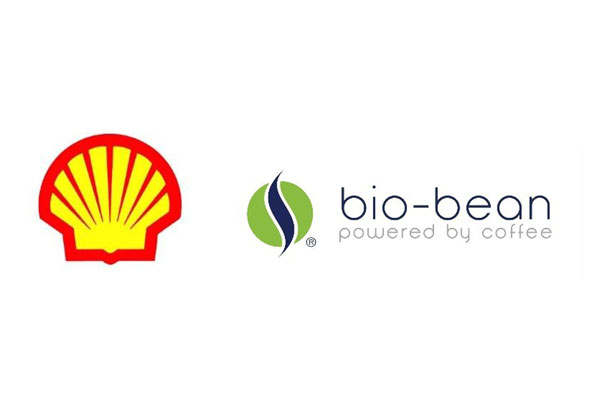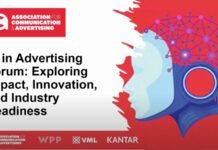Shell and bio-bean announce that together they are helping to power some of London’s buses using a biofuel made partly from waste coffee grounds.
The B20 biofuel contains a 20% bio-component which contains part coffee oil. The biofuel is being added to the London bus fuel supply chain and will help to power some of the buses; without need for modification.
Biofuel provides a cleaner, more sustainable energy solution for buses across London’s network by decreasing emissions[1].
“Our Coffee Logs have already become the fuel of choice for households looking for a highperformance, sustainable way to heat their homes – and now, with the support of Shell, bio-bean and Argent Energy have created thousands of litres of coffee-derived B20 biodiesel which will help power London buses for the first time.” said bio-bean’s founder Arthur Kay. “It’s a great example of what can be done when we start to reimagine waste as an untapped resource. We’ve started in the UK, but imagine the potential of a country like South Africa that drinks more than 3 billion cups of coffee a year. By rethinking our approach to waste, we can create smarter global cities and a brighter future for everyone.”
The average Londoner drinks 2.3 cups of coffee a day[2] which produces over 200,000 tonnes[3] of waste a year, much of which would otherwise end in landfill with the potential to emit 126million kg of CO2[4]. bio-bean works to collect some of these waste coffee grounds from high street chains and factories.
The grounds are dried and processed before coffee oil is extracted. bio-bean works with its fuel partner Argent Energy to process this oil into a blended B20 biofuel. 6,000 litres of coffee oil has been produced, which if used as a pure-blend for the bio component and mixed with mineral diesel to form a B20, could help power the equivalent of one London bus for a year[5].
This latest collaboration is part of Shell’s #makethefuture energy relay, which supports entrepreneurs turning bright energy innovations into a positive impact for communities around the world.
Sinead Lynch, Shell UK Country Chair, said: “When it comes to clean energy, we are always looking for the next inventive solution. A good idea can come from anywhere, but with the scale and commitment of Shell, we can help enable true progress. We’re pleased to be able to support biobean to trial this innovative new energy solution which can help to power buses, keeping Londoners moving around the city – powered in part by their waste coffee grounds.”
bio-bean founder Arthur Kay won Shell LiveWIRE’s Innovation Award in 2013 and the Mayor’s Entrepreneur Programme in 2012 with his ideas about turning coffee waste into fuel. bio-bean has since gone on to produce bio-mass pellets and briquettes called Coffee Logs, before this latest biofuel innovation.
Make the Future
– Shell believes by working together we can transform lives by bringing more and cleaner energy to communities, everywhere. Shell collaborates with inventors, local communities, engaged citizens and global celebrities to transform lives by putting bright energy ideas into action. The Shell #makethefuture programme is not just talking about it but doing it – on the ground, day by day. Each of us has a role to play – as inventors, funders, volunteers, donators or vocal supporters.
– In 2014 Make the Future showcased Pavegen’s innovative kinetic tiles which convert player’s footsteps into energy for lighting football pitches in Rio’s Morro de Mineira favela and Lagos Nigeria. This was followed by 2016’s “Best Day of My Life” initiative which featured some of the world’s top singers to introduce other bright energy idea collaborations. An energy relay began in Kenya , where Shell supported the launch of GravityLight, an invention which brings clean light to off-grid Kenyan homes. This was followed by an initiative in Brazil, where Shell helped Insolar bring affordable solar solutions to communities in need in Rio.
– Find out more about Shell and its support of bright energy ideas and entrepreneurs at http://www.shell.com/energy-and-innovation/make-the-future.html
Shell LiveWIRE & Shell Springboard
– Shell LiveWIRE is a global Royal Dutch Shell Social Investment Programme, which enables young people to start their own business and create employment. Find out more at i.e. http://www.shell.com/sustainability/communities/local–employment–andenterprise/supporting–enterprise–development–and–entrepreneurs.html
– Shell has spent 34 years working with 6,200 cleaner energy entrepreneurs, as well as supporting tens of thousands of promising students worldwide, through initiatives such as Shell LiveWIRE and Shell Springboard.
About bio-bean
– bio-bean is an award-winning clean technology company that has industrialised the process of recycling waste coffee grounds) into advanced biofuels. Bio-bean was founded in 2013 by Arthur Kay and employs nearly 40 people in its London office and at its coffee recycling factory in Alconbury, Cambridgeshire. For more information, please visit bio-bean.com
– bio-bean’s Coffee Logs are an alternative solid fuel for stoves, woodburners and open fires. Made from recycled waste coffee grounds they burn hotter and for longer than wood and are available in supermarkets, garden centres and garage forecourts across the UK. For a full list
of stockists and more information on this award-winning product visit www.biobean.com/coffee-logs
[1] TFL.gov.uk
[3] bio-bean source information
[4] https://www.gov.uk/government/publications/greenhouse-gas-reporting-conversion-factors-2017
(calculation 627kg of CO2 per 1000kg of WCG, bio-bean removes 200,000 tonnes)
[5] Calculation based on biofuel consumption and bus circulation numbers detailed quoted by TFL.gov.uk.





















































































